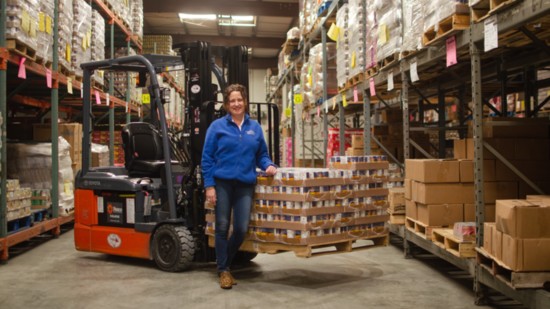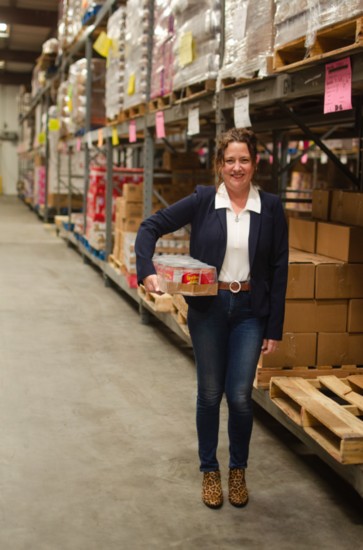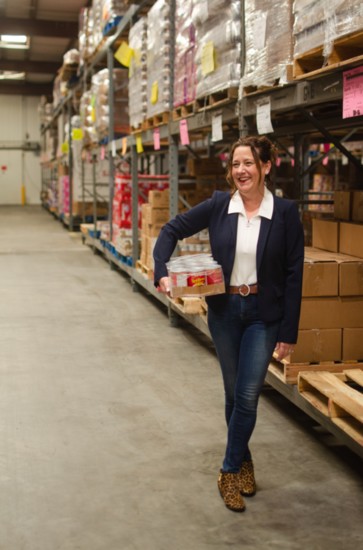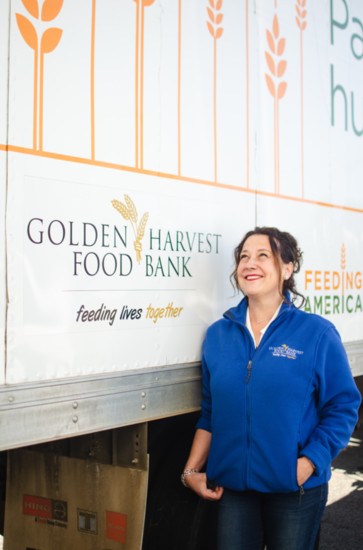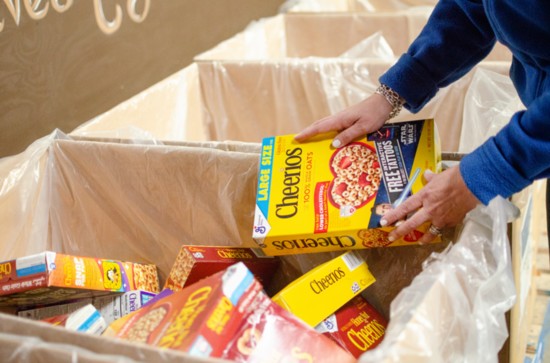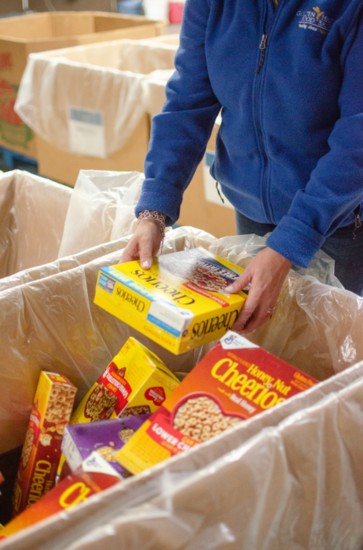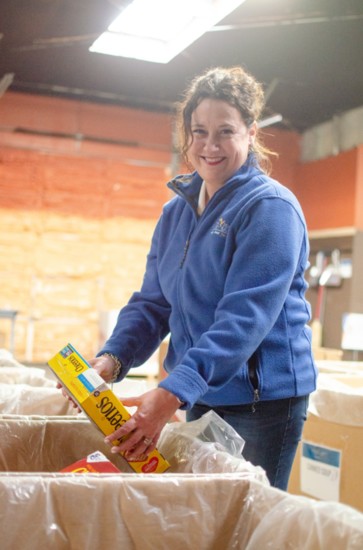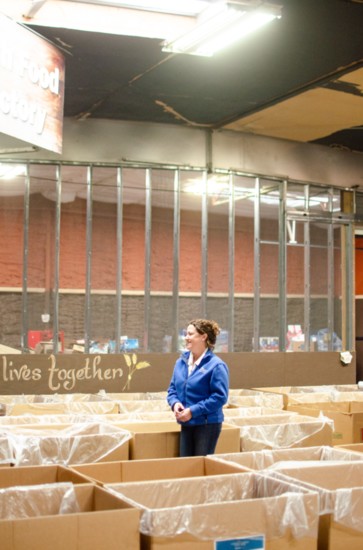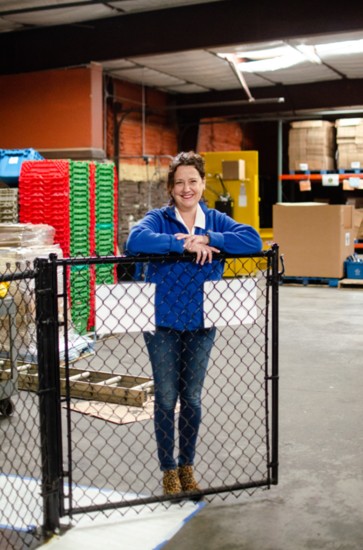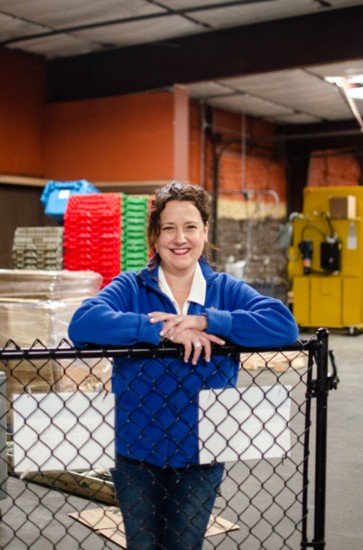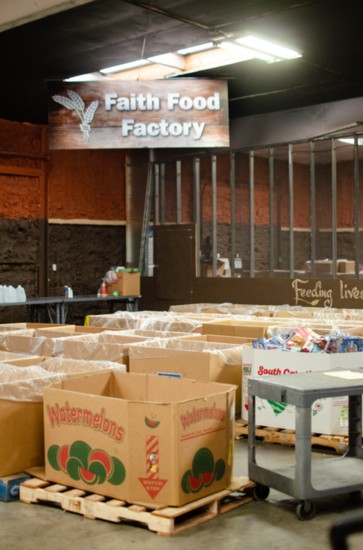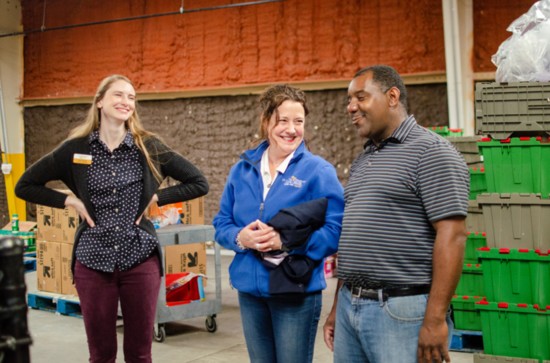Amy Breitmann has lived in the Augusta area for 23 years and began serving as Executive Director of the Golden Harvest Food Bank in December 2019. Amy is well known in the community as co-founder of the Lydia Project, a non-profit that serves women who are facing cancer.
What brought you to Golden Harvest Food Bank?
I have been in the non-profit sector for about 20 years. I’ve always been committed to championing those who are under-served. I came to Golden Harvest with all that experience and a desire to be part of this organization. There is also a faith factor that is so important in this kind of work. It’s really a calling to lead an organization that is serving the hungry and that is Christian-based. This is a spiritual calling, and I’m carrying that torch forward. The combination of my deep faith and my business acumen in the non-profit world has brought me here.
How do you see your role as the new Executive Director?
Initially coming in, I’m taking some time to really honor the legacy that has been built here. I’ve had the opportunity to spend some time with former Executive Directors Mike Firmin and Travis McNeal, and I really just want to honor the things they’ve done. They’ve been so innovative in creating the Master’s Table Soup Kitchen and so many partnerships. For now, I’m really getting to know the national network of food banks and our partners.
What is your vision for Golden Harvest?
I think that moving forward, having such a long history in Augusta with non-profits like Goodwill and the Lydia project, what I can bring to the mission is creation of partnerships with other non-profits.
Golden Harvest is charged with feeding the hungry, and Goodwill is charged with employing people. So how can we work together in our separate missions, linking arms and moving forward to say, "Where do we need to feed people you’re serving, and how can we employ people that are our guests at the Master’s Table?" I think I bring the vision of integrating missions within the community.
What is the role of Golden Harvest in serving the community?
Golden Harvest is part of Feeding America, a national network of food banks. As part of that network, we are charged with feeding the hungry in 25 counties from South Carolina and Georgia. Last year, we served 14 million meals to the hungry, which is about 17 million pounds of food.
We feed the hungry in many ways. We have 175 partner agencies that receive food through our warehouses in Augusta and Aiken. They are the front line of feeding the hungry.
Our Senior Food Box Program provides 18-20lbs of non-perishable food monthly to seniors in our community. This is crucial, especially for those who are living where they don’t have access to good food or grocery stores or they are homebound.
We also have our own agency, the Master’s Table Soup Kitchen, a facility that feeds anyone who shows up on any of the 365 days in a year a hot meal at lunchtime, and we serve approximately 300 meals a day.
The work is done through full time staff, but we rely heavily on volunteers. We need community support to move this amount of food. We have about 600 volunteers a month that help us at the Master’s Table and about 500 that help in our sorting system, working with our food rescue program and donations that come from the community.
What initiatives are you looking to expand as Executive Director?
A couple of things are on the horizon for us. We have our Healthy Plate Initiative, and we continue to work on having a harvest year-round at our Master’s Table Urban Farm to impact what we are serving there by providing and growing high yield, nutrient-heavy food like sweet potatoes, okra, and carrots.
Through this, we introduce guests to new foods and offer them fresh, nutritious food as opposed to things that are canned. Then, increasing access to those nutritious foods in rural areas through our Mobile Food Distribution will help make new connections and reach people that are maybe unreached by our programs.
The second thing we are looking at expanding is our School Markets. We have had, for many years, the Backpack Program where children are able to receive food in their backpacks for the weekend. Most of these kids are eating reduced or free lunch at school, so we know they are eating every day that they are in school, but they may not be eating on the weekends. We’re expanding that program by doing School Markets, where the children can shop in our markets once a week and take home family-sized meals, because we know that it’s not just the child that’s struggling with hunger and being food insecure, but it’s also their families.
What would you like our community to know about you?
I am humbled and awestruck at the dedication of our volunteers, donors, and community partners who come alongside and make this work happen. I get to see the deep impact of it up-close. When I hand out orange juice at the Master’s Table and see the face of hunger that we’re serving, it’s such an honor to know that my team and I aren’t alone in this charge of feeding the hungry, noticing the poor, and making sure people aren’t invisible, but we have this army of volunteers, donors, and business partners that are standing behind us financially and with their time to make sure this happens.
